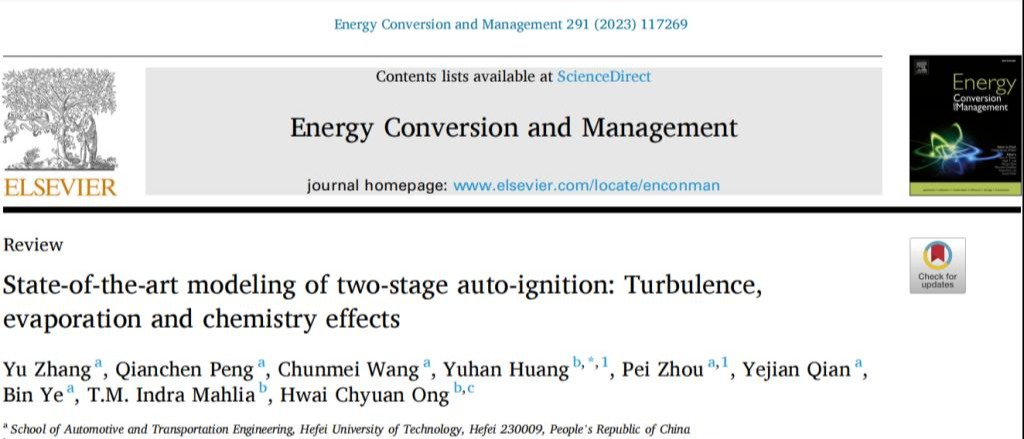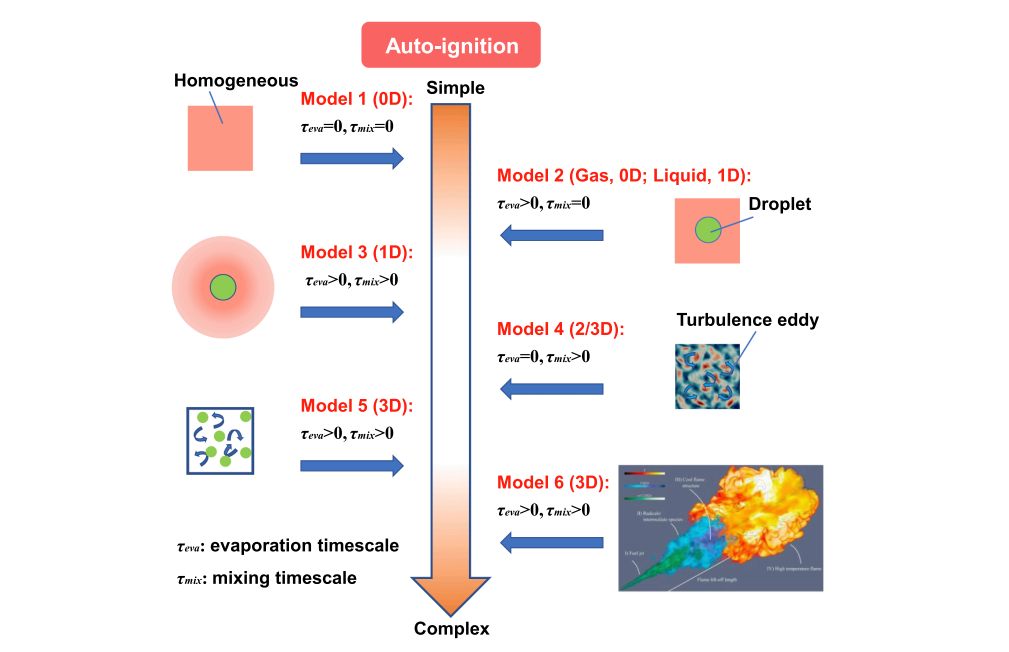In a groundbreaking stride within the domain of two-stage spontaneous combustion modeling, Mr. Zhang Yu, hailing from the esteemed Department of Energy Science and Power of our institution, has spearheaded remarkable advancements. His consequential research findings, encapsulated in the article "State-of-the-art Modeling of Two-Stage Auto-Ignition: Turbulence, Evaporation, and Chemistry Effects," have been lauded with publication in the prestigious Energy Conversion and Management journal—a distinguished international academic platform acclaimed for its eminence in the domain of energy research. This journal holds the esteemed status of being a leading authority in energy research, belonging to District 1 of the esteemed Chinese Academy of Sciences, boasting an Impact Factor of 11.533.
The allure of low-temperature combustion lies in its innate ability to concurrently augment engine thermal efficiency while curbing pollutant emissions, embodying a beacon of promise in the realm of combustion technology. Within low-temperature combustion engines, the observable phenomenon of two-stage spontaneous combustion presents an enigmatic challenge, characterized by the inherent complexity in its regulation and control. Mr. Zhang Yu's comprehensive study serves as a compendium of the most recent strides in the modeling of two-stage spontaneous combustion, offering invaluable insights poised to inform the design and development of engines that are both more efficient and environmentally benign.

Central to this pioneering research endeavor is an intricate dissection of the multifaceted interplay of turbulence, evaporation, and chemical effects within the realm of two-stage spontaneous combustion. The study meticulously examines and compares five distinct models, encapsulating a nuanced analysis of their mechanisms and operational efficacy.
The trailblazing trajectory of this research endeavor was supported by an array of prestigious entities, including the National Natural Science Foundation of China (52106138), the Basic Research Business Fund of Central Universities (2021HGTA0151, 2021HGTA0150, 2021HGQA0239, 2023HGTB0255), and the Major Science and Technology Project of Anhui Province (202003a05020023). These esteemed affiliations not only underpin the significance of Mr. Zhang Yu's research but also underscore the profound societal implications and utility of his groundbreaking contributions.
(Research Paper Link: https://doi.org/10.1016/j.enconman.2023.117269)
